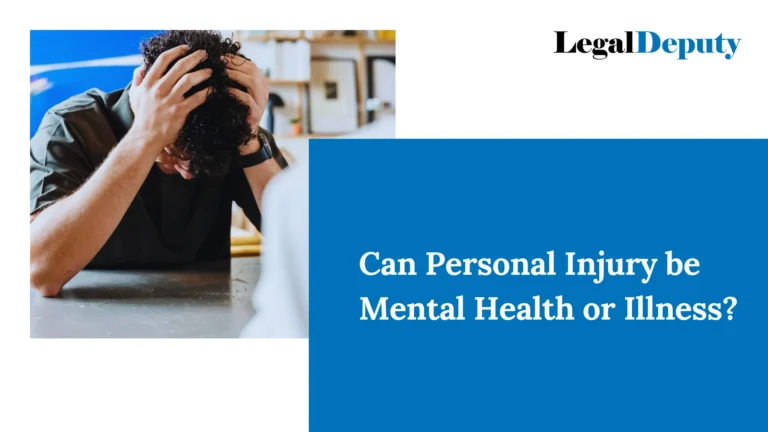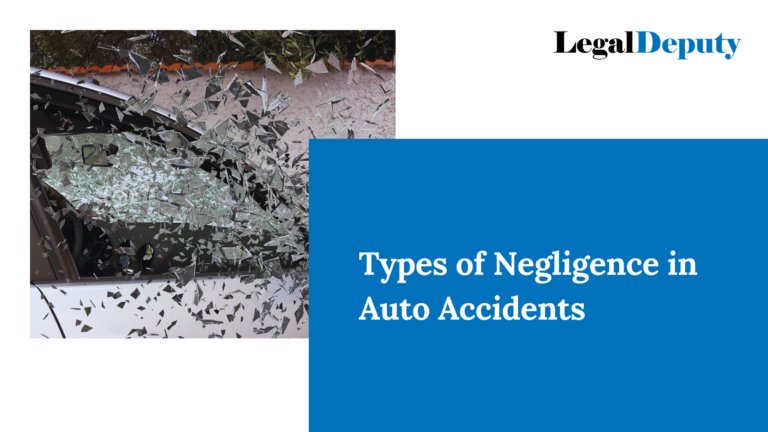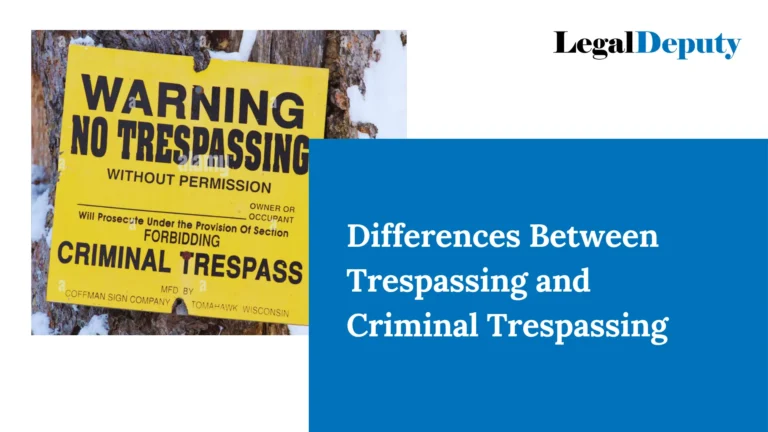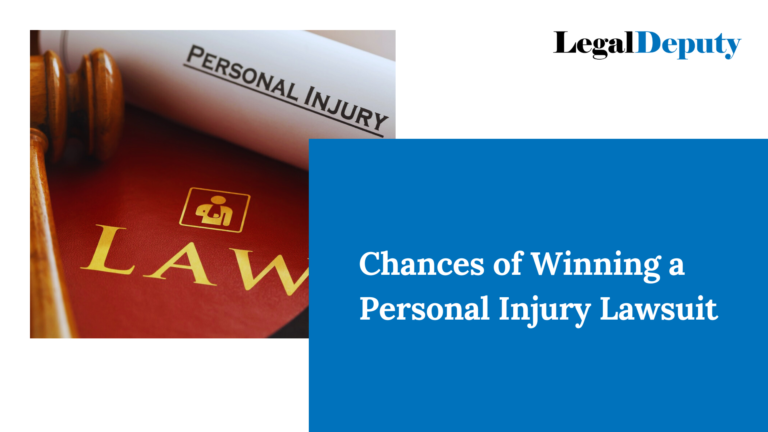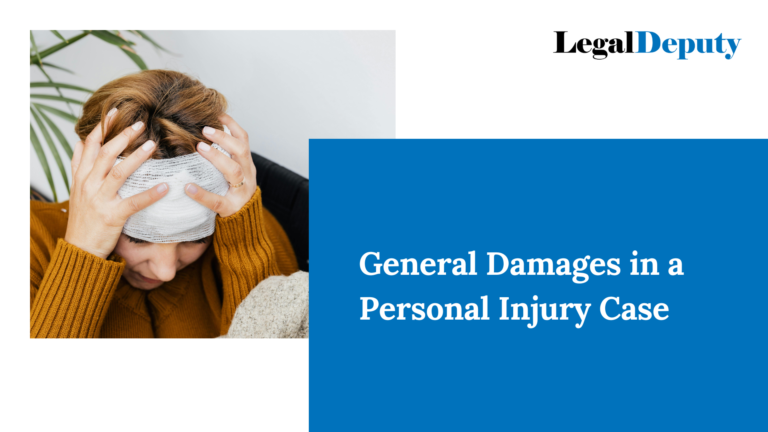9 Ways To Maximize Your Personal Injury Settlement
Navigating a personal injury case can be overwhelming, especially if you’re unfamiliar with the legal process. Whether you’ve been injured in a car accident, at work, or in a slip-and-fall incident, one of your primary concerns is likely how to maximize your personal injury settlement. While personal injury cases may seem daunting, there are steps you can take to improve your chances of securing the compensation you deserve.
In this blog, we’ll explore the essential tactics and strategies to help you get the best possible settlement, covering both legal aspects and how to manage the emotional stress that often comes with it.
1. Seek Medical Treatment Immediately
One of the most important steps to maximizing your personal injury settlement is to seek medical attention right after the injury occurs. Even if your injuries seem minor at first, a healthcare professional can identify potential long-term issues.
Why is this important?
Medical records are critical in proving the extent of your injuries, and prompt treatment shows the insurance company that you took your injuries seriously. Delaying medical care can give the opposing party an excuse to argue that your injuries weren’t severe, making it harder to receive full compensation.
Pro tip: Always follow up with any recommended treatment plans, such as physical therapy or specialist consultations. Failure to follow through can weaken your case.
2. Document Everything
Proper documentation is essential for building a strong personal injury case. Keep detailed records of all the evidence related to your injury, including:
- Accident reports: Police or workplace reports that outline what happened.
- Medical bills: Save all invoices for doctor visits, surgeries, medication, and therapy.
- Photos and videos: Take photos of your injuries and the scene where the accident took place.
- Witness statements: Collect contact details and statements from anyone who witnessed the incident.
Why is this important?
Comprehensive documentation strengthens your claim by providing clear, tangible evidence. This helps to establish fault and demonstrate the extent of your injuries.
Want a Free Consultation?

3. Avoid Giving Recorded Statements Without Legal Counsel
When dealing with an insurance company, avoid providing a recorded statement without consulting your attorney first. Insurance adjusters are trained to minimize payouts and may try to use your statements against you.
Why is this important?
You might unintentionally say something that can harm your case, such as downplaying your injuries or accepting partial blame for the accident. By working with an attorney, you can avoid these pitfalls and ensure that your statements are carefully crafted to support your claim.
Pro tip: Limit your communication with the insurance company, and let your lawyer handle most of the discussions.
4. Be Cautious With Social Media
In the digital age, social media can unintentionally damage your personal injury claim. Avoid posting anything related to your case or your daily activities that might contradict your injury claims.
Why is this important?
Insurance companies and defense attorneys often monitor social media to find evidence that could discredit your claim. For example, if you’re claiming a severe back injury but post a picture of yourself hiking, this could be used to minimize your settlement.
Pro tip: Consider avoiding social media altogether until your case is resolved.
5. Hire a Personal Injury Attorney
One of the best ways to maximize your settlement is to hire an experienced personal injury attorney. A skilled lawyer knows how to navigate the complex legal system, handle insurance negotiations, and build a strong case.
Why is this important?
Attorneys understand the tactics insurance companies use to devalue claims. They can gather evidence, consult with medical experts, and negotiate on your behalf to secure the highest possible settlement. Additionally, personal injury lawyers often work on a contingency basis, meaning you don’t pay unless you win the case.
Pro tip: Research attorneys who specialize in your specific type of injury, whether it’s a car accident, medical malpractice, or a workplace injury.
6. Don’t Settle Too Quickly
Insurance companies often try to settle claims as quickly as possible, usually offering lowball amounts. While it may be tempting to accept the first offer, especially if you’re facing medical bills or lost wages, it’s important to wait until the full extent of your injuries and future medical needs are clear.
Why is this important?
Once you accept a settlement, you waive your right to any further compensation. If your injuries turn out to be more severe or require ongoing treatment, you could be left covering these costs on your own.
Pro tip: Wait until you’ve reached maximum medical improvement (MMI), meaning your condition has stabilized, before considering any settlement offers.
7. Account for Future Damages
When calculating your settlement, it’s important to consider not just your immediate expenses but also any future costs related to your injury. This includes ongoing medical treatment, rehabilitation, lost earning potential, and pain and suffering.
Why is this important?
Many people overlook future damages, which can lead to accepting a settlement that doesn’t fully cover long-term needs. A lawyer can help estimate future costs and include them in your settlement demand.
Pro tip: Keep detailed records of all medical appointments and anticipated treatments to show the extent of your ongoing recovery.
8. Manage Your Emotional Well-Being
While the legal process of a personal injury case can be stressful, it’s also important to manage the emotional toll. Personal injury cases can take months, or even years, to resolve. It’s normal to feel frustrated, anxious, or overwhelmed during this time.
Why is this important?
Stress can cloud your judgment, causing you to make hasty decisions or settle prematurely. Emotional resilience is key to seeing your case through and getting the compensation you deserve.
Pro tip: Consider speaking with a counselor or joining a support group for people dealing with personal injuries. Additionally, stay patient and trust the process. A strong case takes time to build.
9. Calculate Non-Economic Damages
While economic damages such as medical bills and lost wages are easier to quantify, non-economic damages, like pain and suffering or emotional distress, also play a significant role in personal injury settlements. These damages compensate for the more intangible consequences of an injury.
Why is this important?
Insurance companies may try to undervalue non-economic damages, but they are a vital part of a fair settlement. Working with an attorney ensures that these damages are included and properly calculated in your demand.
Pro tip: Keep a journal documenting how the injury has impacted your daily life, including physical pain, mental stress, and any limitations on your normal activities.
Want a Free Consultation?
Bonus Tip: Be Patient
Patience is key when it comes to maximizing your personal injury settlement. Insurance companies often try to delay the process in hopes that you’ll settle for less just to resolve the case. However, rushing to settle could leave money on the table.
Why is this important?
The longer you are willing to wait and build a strong case, the more leverage you have when negotiating a higher settlement. Settling too early can prevent you from recovering the full amount you’re entitled to.
Pro tip: Work closely with your lawyer to establish a timeline and ensure that all settlement offers are carefully evaluated before making any decisions.
Conclusion
Conclusion: Maximizing a personal injury settlement requires a strategic approach, from gathering thorough documentation and hiring a skilled attorney to accounting for future damages and managing the emotional challenges. By following these tips, you can significantly increase your chances of receiving fair compensation for your injuries.
Remember, the process may take time, but patience and proper legal guidance can lead to the best possible outcome. If you’re facing a personal injury case, consult with a qualified attorney who can help you navigate the complexities of your claim and maximize your settlement.
FAQ Section
1. How long does it take to settle a personal injury claim?
The timeline for settling a personal injury claim varies depending on the complexity of the case. Simple cases may settle within a few months, while more complex claims involving severe injuries or disputes may take over a year. Patience is crucial to avoid settling for less than your case is worth.
2. Should I accept the first settlement offer from the insurance company?
It’s generally not advisable to accept the first offer. Insurance companies often offer low settlements early in the process, hoping you’ll accept less before understanding the full extent of your injuries. Consult with your attorney before agreeing to any settlement.
3. What if I can’t afford a lawyer?
Most personal injury attorneys work on a contingency fee basis, meaning they only get paid if you win your case. This allows you to secure legal representation without paying upfront fees, ensuring you can still pursue a fair settlement.
4. How is pain and suffering calculated?
Pain and suffering damages are typically calculated based on the severity of your injury, the impact on your daily life, and the length of your recovery. Insurance companies use various methods, including the “multiplier method” (multiplying your economic damages by a number based on injury severity) or the “per diem method” (assigning a daily value for your suffering).
5. Can I still get a settlement if I was partially at fault for the accident?
Yes, you may still receive compensation even if you were partially at fault. Under comparative negligence laws, your settlement may be reduced by the percentage of fault assigned to you. For example, if you’re found 20% at fault, your settlement will be reduced by 20%.
Related Blogs:
7 Reasons Your Personal Injury Case May Go To Trial
How Do I Know If My Personal Injury Settlement Is Fair and Reasonable?
Disclaimer:
The information provided in this blog, “9 Ways To Maximize Your Personal Injury Settlement”, is intended for general informational purposes only and does not constitute legal advice. While we strive to provide accurate and up-to-date information, the content of this blog may not reflect the most current legal developments or interpretations.
Readers should not act or refrain from acting based on the information contained herein without seeking appropriate legal or other professional advice on the specific facts and circumstances at issue from a licensed attorney in the relevant jurisdiction. This blog is not intended to create, and receipt of it does not constitute, an attorney-client relationship between the reader and the author or the author’s affiliated organization.
All liability with respect to actions taken or not taken based on the contents of this blog is expressly disclaimed. The information is provided “as is”; no representations are made that the content is error-free.
For specific legal advice regarding your personal injury case or any other legal matters, please consult with a qualified legal professional.


